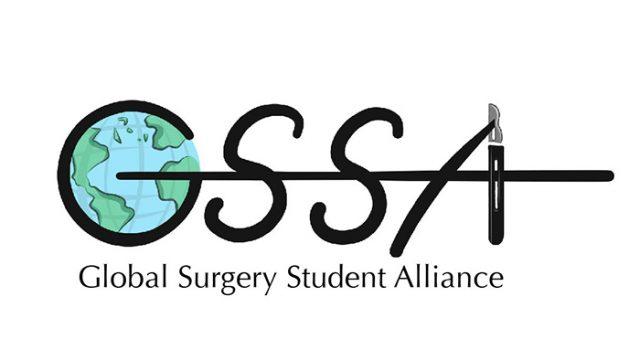Leading surgeons from all over the Boston Area from the field of global surgery will gather on March 4 to speak in front of over 200 medical and undergraduate students at the Boston Global Surgery Symposium. And this number does not include the thousands of students who will be in attendance via live-streaming from all over the country.
As she entered her first year at Harvard Medical School, Parisa Fallah, a student at Harvard Medical School, knew two things: She wanted to pursue the field of global surgery, and connect students around the country—and the world for that matter—who had a similar passion. Thus, the Global Surgery Student Alliance (GSSA) was born. Fallah, along with 14 other members from Harvard Medical School, Boston University Medical, and Harvard School of Public Health, comprise the team that is pulling the conference off all on their own, while juggling medical school simultaneously.
“As much work as it is, I think that the power of students and youth has something special to it, that can make these things come together,” Fallah said.
As the day of the symposium nears, Fallah gave some insight into what the day’s events will hold. The conference, which begins at 8 a.m. and runs until 1 p.m., will kickoff with keynote speaker Dr. John Meara, co-chair on the Lancet Commission on Global Surgery, and will feature two different panel-session times, each with four different panel topics to attend during a designated period.
For those who are nervous about missing panel topics that run simultaneously, the leadership team is already one step ahead, and arranged for each panel to be recorded. This feature will allow students, whether they are in physical attendance or live-streaming, to go back and watch anything they missed.
The majority of the speakers at the symposium are leaders in the field from around the Boston area who have agreed to speak probono. Word of the symposium, however, has quickly spread, even reaching the ears of a doctor in North Carolina who will speak.
Fallah and the rest of her team hope that the symposium will help connect students within the field of global surgery and will make them aware of all the opportunities that are within their reach. All students need to do is simply take action.
“Our main goal is to make students more aware of global surgery as a whole,” Fallah said. “But if we could get students interested enough to start similar programs at their schools, that would be an added benefit because I truly believe that the best way for us as students to learn is through collaboration.”
One of the biggest challenges that the leadership team has faced in putting together the conference is the lack of funding. As a new organization, having different departments donate money to a group whose success is unpredictable was one of the hardest aspects of pulling off the Symposium.
After reaching out to about 30 different departments, the group was able to raise enough to lock down a space for the conference and really began to pull it all together. While ticket sales are another source of funding, the team wanted to make sure that the conference was still affordable and accessible to the majority of students, by keeping ticket prices at $15 per person. Fallah hopes that the success of this year’s Symposium will ease funding difficulties in the following years.
While putting together the conference itself has been the main focus of GSSA in the past few weeks, national outreach is also a large focus of the group’s philosophy. So far, the leaders have already arranged to have a live-streaming event of the conference with 15 other schools. After the Symposium, one of the main goals of the group will be to gather materials that will aid other schools in organizing their own group in the proper manner.
“We want to make sure than anyone who has an interest, can be involved in our program and that it is all inclusive and not just limited to those students in Boston due to location,” Fallah said.
In continuing the work of the GSSA, Fallah explained that in the time in between their conference next year, the group’s leaders hope to expand awareness of global surgery by organizing workshops, putting together research presentations, and linking students to practicing doctors to work on case-studies.
Another exciting opportunity stems from a potential collaboration with the international equivalent of GSSA. Whereas the United States group’s leadership is entirely located within Boston, the international team includes students from all across the world, presenting an exciting opportunity for further collaboration. Fallah was particularly excited about this opportunity because it would be the first time that global students could be on the same page with regards to the available knowledge in the surgical field.
For students with an interest in the field of global surgery or the medical field in general, Fallah hopes that the symposium this weekend will unite passionate students from around the Boston area and beyond.
Featured Image Courtesy of GSSA







